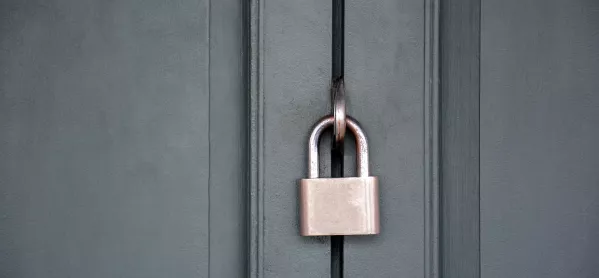- Home
- Schools reopening announcement was ‘political’
Schools reopening announcement was ‘political’

The group set up to steer Scottish education through the coronavirus crisis did not discuss yesterday’s controversial announcement on fully reopening schools, Scotland’s biggest teaching union has said.
The announcement was described as “political” by the EIS today, which warned today that opening schools fully in August without social distancing would not be safe.
EIS general secretary Larry Flanagan said in an email to members today that the move towards fully reopening school in August had not been agreed by the Covid Education Recovery Group.
Also today: ‘Teachers will get a summer break’
‘I could have wept’: Teachers respond to announcement on schools returning
Parents who teach: ‘Not all parents want children rushed back to school’
Opinion: ‘Education is becoming a political football once again’
The group - jointly chaired education secretary John Swinney and Stephen McCabe, the children and young people spokesman for local authorities body Cosla - was set up to plan for the return of schools.
Mr Flanagan said in an email to members the announcement had sparked “considerable debate, anxiety, frustration, confusion and even anger” among teachers and had “given rise to a host of questions”, but that the union “will not be compromising on the safety of staff or pupils, no matter who we upset”.
The email to EIS members from Mr Flanagan states: “It is worth making clear that this was a political announcement from the Scottish government - not an agreed outcome from CERG (Covid Education Recovery Group) which met only last week and discussed support for blended learning and the plight of NQTs [newly qualified teachers] but had no discussion around yesterday’s statement.
“Setting aside the political noise around the whole debate, however, and focusing on the detail of what has been said, the Scottish government appears to have moved from the previous presumption that the level of Covid infection in Scottish society come August would require schools to reopen on a blended learning model, to one which suggests that the virus will have been suppressed sufficiently to allow schools to reopen with all pupils attending, albeit with certain public health mitigations in place.
“That is certainly a shift in planning emphasis from the Scottish government. Essentially it is a ‘maybes aye, maybes naw’ scenario, as ultimately the decision is dependent on where the level of Covid-19 infection will be in seven weeks time.
“The critical EIS red line that a return to school, in any model, can only happen when there is demonstrable evidence that the virus is under control remains in force.”
The statement adds: “The EIS is not convinced that no physical distancing between pupils is safe and we are absolutely certain that physical distancing between pupils and teachers remains essential. It may be that the actual distance, come August, will have been reduced from the current two metres if the level of infection has dropped further, but there cannot be a social distancing rule for outside of schools and a different one for inside classrooms.
Mr Flanagan asks “why would it be mandatory to wear a face covering on public transport but not in a classroom? Why would a till assistant be protected by a perspex sheet but not a teacher?”
The EIS has also “raised the possibility of proactive [Covid-19] testing for teachers, on a voluntary basis”.
Mr Flanagan says “one of the biggest frustrations for members” was yesterday’s announcement being so close to the end of term -which is today in many places - and that teachers “are now heading into a summer where uncertainty will be in the air with a whole set of other planning requiring to be tackled”.
Extra preparation days at the start of term are “essential” if schools are to reopen in August with full rolls.
Mr Flanagan states: “We need to be absolutely clear that it would be a fundamental error on the part of the Scottish government, our employers, parents, or indeed anyone, to believe that Covid-19 will have gone away in August and that it will be business as usual for schools. It will not be.
“If that is a politically inconvenient truth for anyone, it nonetheless remains a truth.”
Keep reading for just £1 per month
You've reached your limit of free articles this month. Subscribe for £1 per month for three months and get:
- Unlimited access to all Tes magazine content
- Exclusive subscriber-only stories
- Award-winning email newsletters



